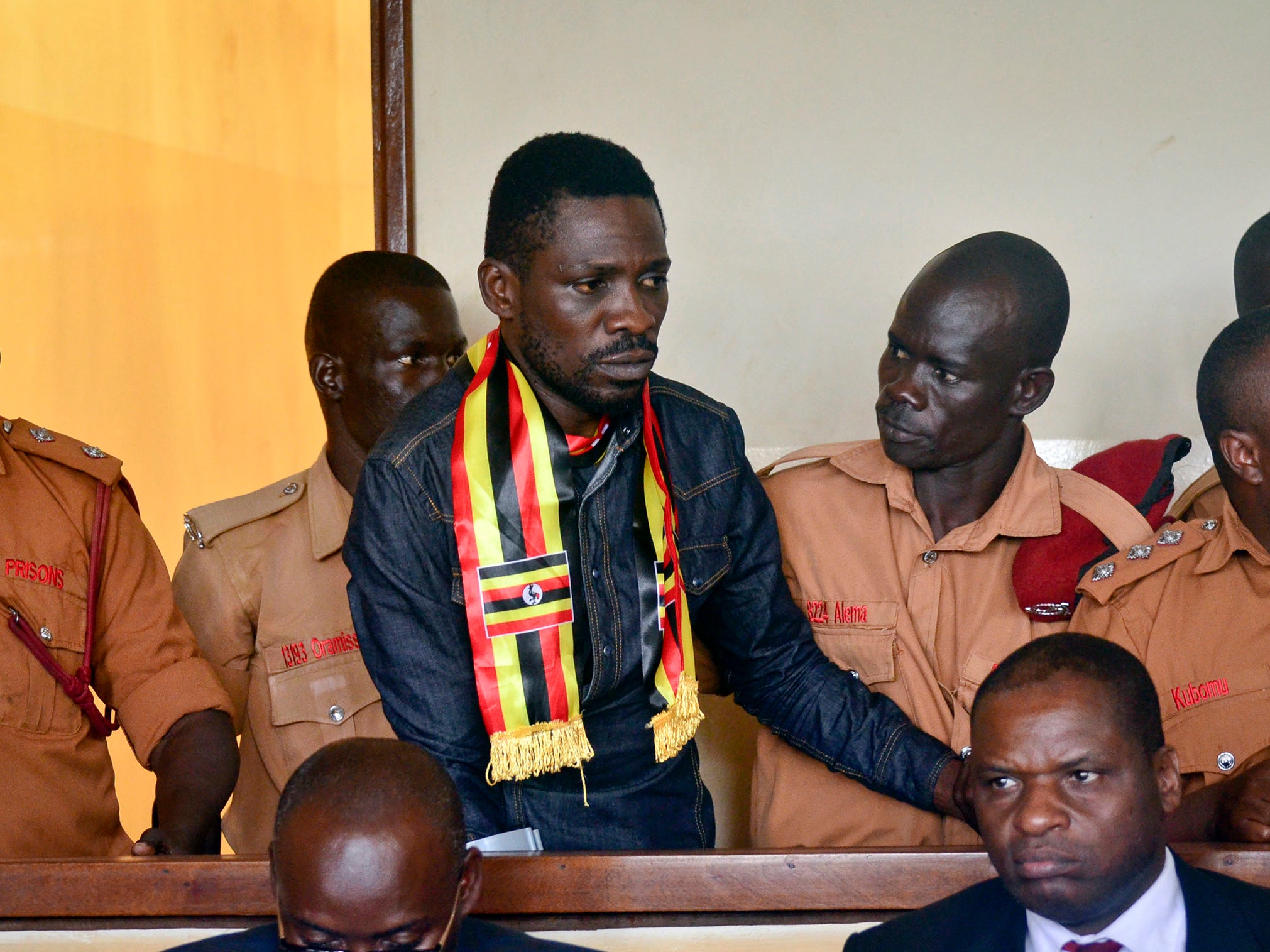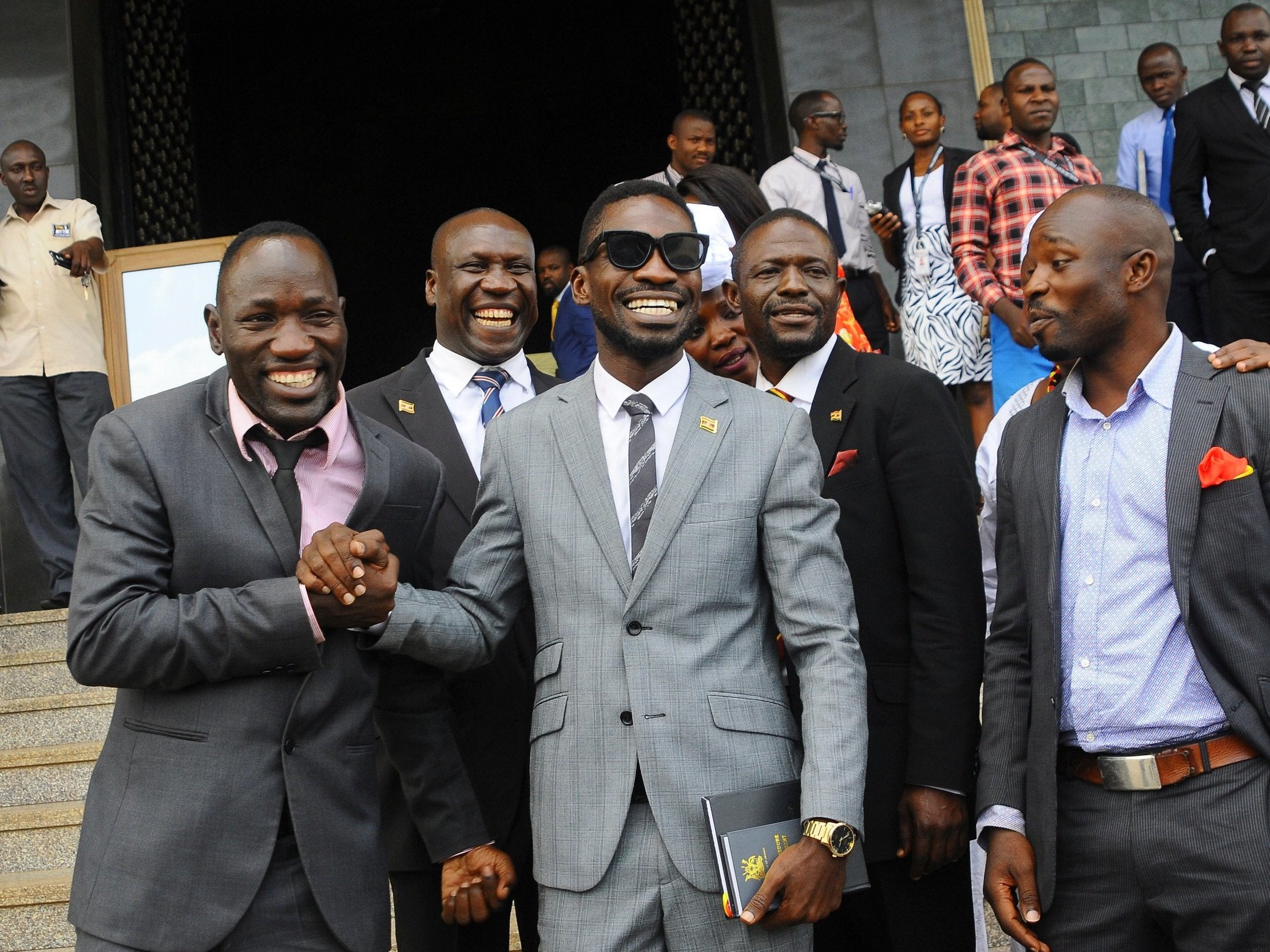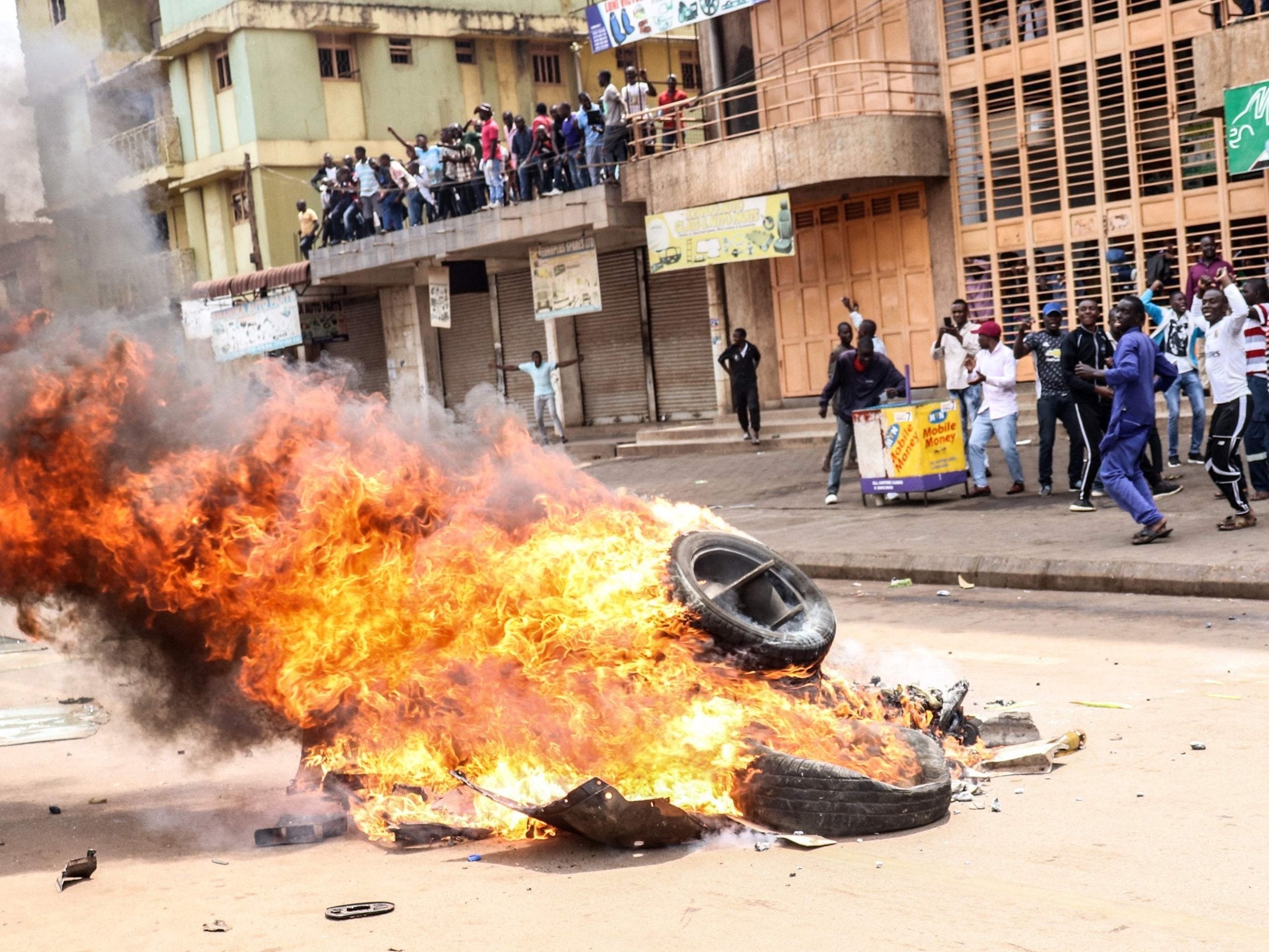Ugandan pop star Bobi Wine charged with treason minutes after release for possession of firearms
Influential critic of country's president sits in the dock as lawyers say he was unable to stand on his own

Your support helps us to tell the story
From reproductive rights to climate change to Big Tech, The Independent is on the ground when the story is developing. Whether it's investigating the financials of Elon Musk's pro-Trump PAC or producing our latest documentary, 'The A Word', which shines a light on the American women fighting for reproductive rights, we know how important it is to parse out the facts from the messaging.
At such a critical moment in US history, we need reporters on the ground. Your donation allows us to keep sending journalists to speak to both sides of the story.
The Independent is trusted by Americans across the entire political spectrum. And unlike many other quality news outlets, we choose not to lock Americans out of our reporting and analysis with paywalls. We believe quality journalism should be available to everyone, paid for by those who can afford it.
Your support makes all the difference.A Ugandan pop star-turned-politician who opposes the country's longtime president was charged with treason in a civilian court on Thursday, minutes after a military court dropped weapons charges.
The new charge was expected to bring fresh outrage from Ugandans and global musicians after Robert Kyagulanyi Ssentamu, also known as Bobi Wine, alleged he had been severely beaten while in detention. The government denies the claim.
Mr Ssentamu has emerged as an influential critic of president Yoweri Museveni, especially among youth, after winning a parliament seat last year.
The 36-year-old had been charged last week with illegal possession of firearms for his alleged role in an incident in which Mr Museveni’s motorcade was pelted with stones.
A military court freed him on Thursday but the politician was re-arrested by police and taken to a magistrates’ court.
Mr Ssentamu limped during his appearance in military court and appeared to cry as he rubbed his eyes. A colleague wrapped the national flag about his shoulders. He sat in the dock in magistrates’ court as his lawyers said he was unable to stand on his own.

Lawyers for Mr Ssentamu asked the magistrate to order his remand to a health facility. The magistrate ruled that Mr Ssentamu should be allowed access to his own doctors. He was remanded until 30 August.
He had been arrested with four other opposition politicians, three of whom also face treason charges. A fifth has been hospitalised with injures allegedly sustained during detention.
Mr Ssentamu’s appearance on Thursday was the first time he had been seen in public since his detention. He clenched his fists and greeted supporters.
In recent days Uganda’s government has faced mounting pressure at home and abroad to free him. Security forces have violently put down street protests demanding his release.
On Thursday, other opposition figures expressed concern about being targeted by security forces. “Every way out of my home is barricaded since very early today,” Kizza Besigye, a four-time presidential challenger who has been jailed many times, tweeted.

Police spokesman Emilian Kayima later said Mr Besigye was arrested when he tried to force his way out.
Police were also deployed, under what the spokesman called “preventive arrest,” at the homes of certain Ugandans after receiving intelligence that some “wanted to engage in criminal activities”.
Mr Ssentamu’s arrest came after he was campaigning in an election to choose a politician in the northwestern town of Arua.
Mr Museveni was also in Arua at the time, campaigning for a rival candidate who eventually lost. While the president was departing, authorities said, his motorcade was pelted with stones by people associated with Mr Ssentamu and the candidate he backed, Kassiano Wadri.
Mr Ssentamu’s driver was shot and killed, allegedly by security forces.
In a statement, Mr Museveni accused “unprincipled politicians” of luring youth into rioting. Responding to calls on social media to #FreeBobiWine, the president said he had no power to release Mr Ssentamu. “Let us therefore wait for the courts and see what they decide.”
Mr Museveni, a US ally on regional security, took power by force in 1986 and has since been elected five times. Although he has campaigned on his record of establishing peace and stability, some worry that those gains are being eroded the longer he stays in power.
The 74-year-old is now able to seek re-election in 2021 because parliament passed legislation last year removing a clause in the constitution that had prevented anyone over 75 from holding the presidency. Mr Ssentamu publicly opposed that decision.
Associated Press
Join our commenting forum
Join thought-provoking conversations, follow other Independent readers and see their replies
Comments